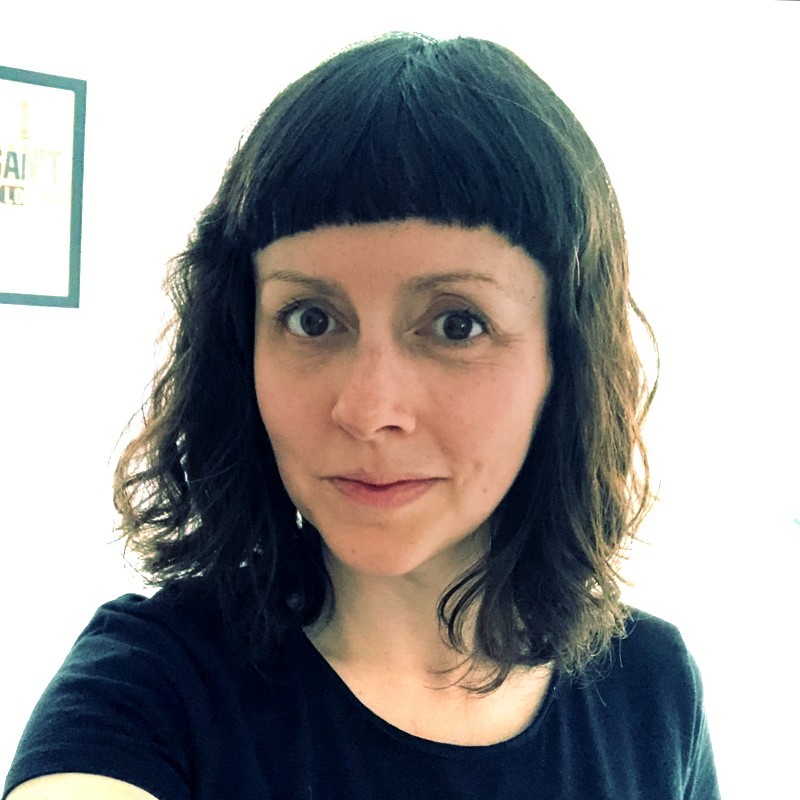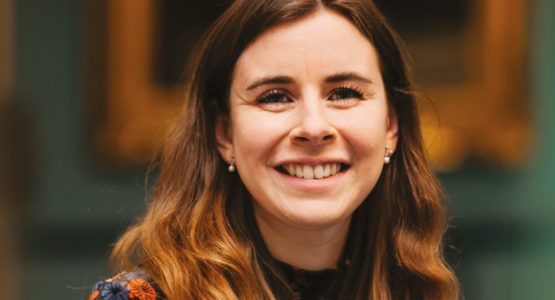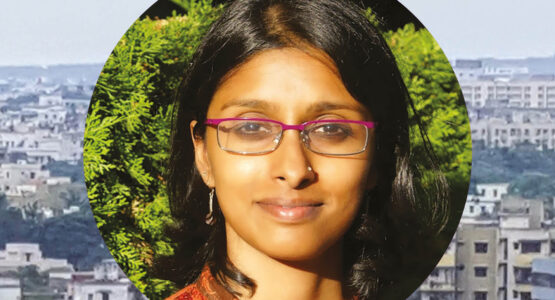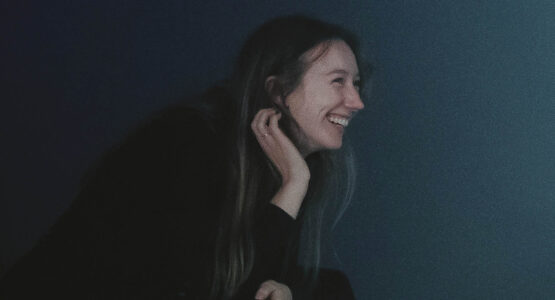Katie Smith (1999) read English at St John’s, staying on for a year to complete an additional Part II in Management Studies. She is now Executive Director, Global Hub at CAMFED, an international non-profit that supports girls to learn, thrive and lead change.
Tell us a bit about your early career journey.
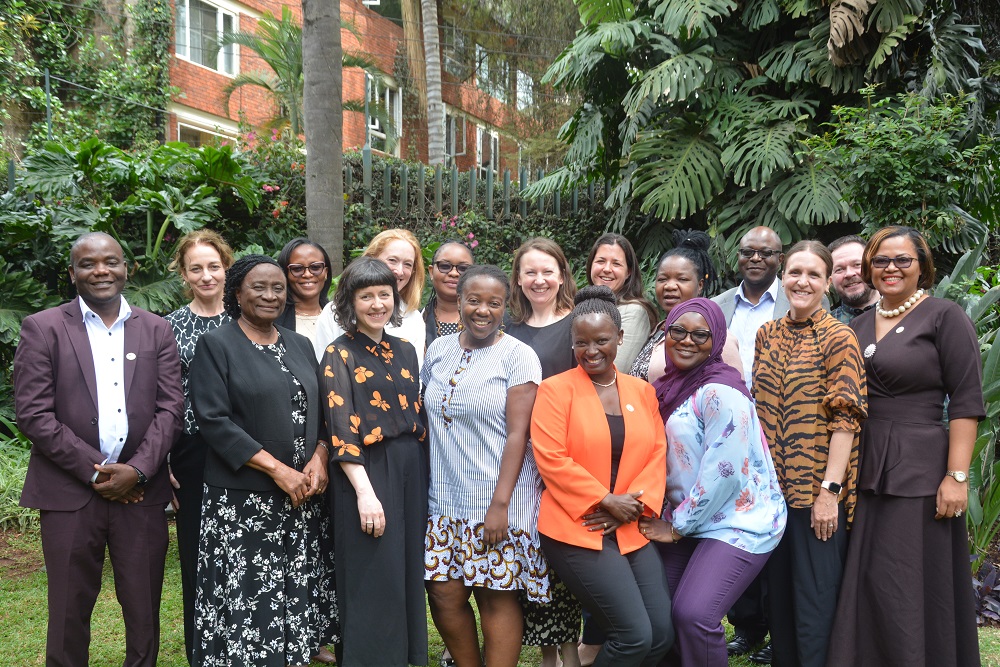
Image credit: Kyalo Musyoka
After reading English at St John’s, I decided to pursue a career in publishing. After a few years at a small academic press, I became an educational publisher for an international company, working on textbook schemes for schools in Nigeria and Ghana and eventually, as K–12 Programme Director, developing content for markets across Africa, the Caribbean and the Middle East. Memorably, this once included interviewing Haile Gebreselassie in Addis Ababa for a children’s book, but the bulk of my work was leading tenders for large government textbook contracts in Africa. This meant spending a lot of time in education ministries, negotiating on contracts and then content – a true lesson in the mechanics, challenges and power dynamics of education development funding and delivery. I wanted to understand more, especially about how this affected real people, and to have more impact than I could in a commercial role in quite a small corner of the picture.
My company partnered with CAMFED, the Campaign for Female Education, to provide content development support for a revolutionary new peer educator programme in Africa, and I took a secondment to lead the publishing side of the project. Six months later, having travelled in Tanzania and Zimbabwe with CAMFED, I was wowed by its model and movement in support of girls’ education and women’s livelihoods, and by how it operated – like a business, but with girls and young women as clients and shareholders. Girls were actually called ‘clients’ rather than ‘beneficiaries’, as was common in the sector, and accountability to them was at the core of everything CAMFED did. So I jumped at the chance to apply for a role in CAMFED’s management team as Head of Grants. A decade later, I’m still here, as Executive Director, Global Hub.
What’s it like working for CAMFED? What are its aims and objectives?
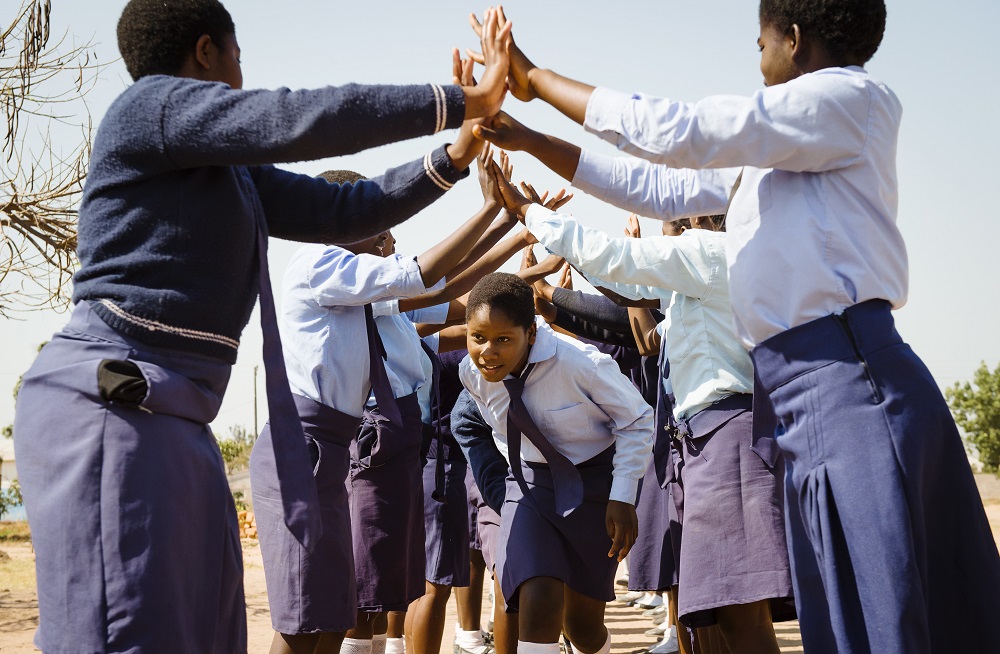
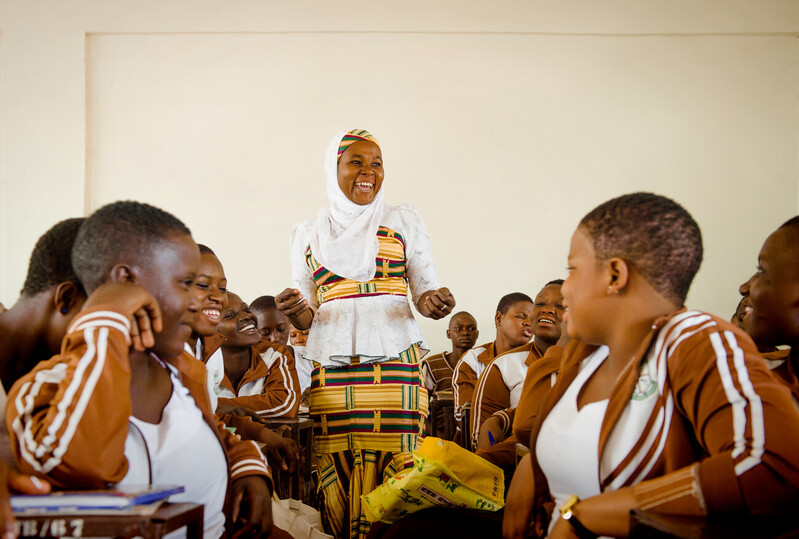
Over the last 30 years, CAMFED has become a powerful pan-African movement, led by young women who were once supported through school. It has evolved from a model focused on bursary support to help girls access school, to a very responsive, scaled approach targeting the barriers individual girls face to succeed in school and in moving into secure livelihoods. We focus on girls and young women in rural communities, as the most excluded group. A shocking 95% of girls in sub-Saharan Africa won’t complete a secondary education. This is a serious injustice for individual girls, for whom education is a basic right, and it has huge socio-economic implications. It has been proven time and again that girls’ education advances economic development, health, gender equality, social justice and our ability to tackle climate change.
CAMFED’s three-level model focuses on supporting girls to thrive in the classroom, supporting graduates to transition to work and positions of leadership through the CAMFED Association (a network of over 250,000 young women who were supported to go to school and now help to support the next generation of girls) and partnering with governments to ensure education systems can serve the needs of all children. The women leaders of the CAMFED Association bring experience of exclusion and expertise in removing educational barriers for girls and make it possible for CAMFED to continue to be accountable to every single girl, but to make change at scale. Each member is supporting an average of three more girls to go to school. Together, we’ve already supported more than 6.5 million marginalised children across Ghana, Malawi, Tanzania, Zambia and Zimbabwe to go to school.
CAMFED is intentionally structured to ensure that strategy and operations are led from where the expertise is, in the countries and communities where we work. Our CEO, based in Zimbabwe, was one of the first 32 girls supported by CAMFED, and members of the CAMFED Association make up a significant proportion of our staff. This is one of the most attractive things about working for CAMFED for me – that through our structure and approach we critically engage with and challenge prevailing power dynamics, recognising that it’s those in our partner communities who know and can shape what works. As Executive Director, Global Hub, I oversee the co-ordination of everything we do outside of Africa (eg technical support/expertise, systems, fundraising, grant and partnership management, compliance) that supports frontline delivery, ensuring that our work as a consortium is well aligned. It’s incredibly varied, fast-paced and challenging work.
The opportunity to work in a feminist organisation, learning daily from a highly committed global team, is a permanent highlight. Seeing CAMFED’s impact pull through in the activism and commitment of CAMFED Association leaders is incredibly motivating. For example, through the initiative that first brought me to CAMFED in 2013, the Learner Guide programme, 20,000 young women have so far regularly supported over 2 million children and the model is being adapted and integrated into national education systems. This is really meaningful, sustainable change.
What does the CAMFED Learner Guide programme offer?
Learner Guides are young women graduates from marginalised backgrounds, who volunteer in their local schools, delivering a life skills curriculum to tackle the in-school barriers faced by girls. As ‘near peer’ mentors from the same communities, they’re uniquely placed to understand the challenges girls face and to spot those at risk of drop-out. In return for volunteering, they can access training and professional development, a BTEC qualification and no-cost small business loans that recognise their volunteering as ‘social interest’. So they build their own pathway to a secure adulthood at the same time as supporting girls in school. And in taking on visible leadership roles in school communities, they are resetting gendered expectations and norms, and showing the value of investing in education. The programme is connected to significant reductions in school dropout, improved learning outcomes, and increased confidence and self-esteem. Analysis by the REAL Centre at the Faculty of Education, Cambridge, has valued its impact on students as equivalent to an additional two years of schooling.
You’ve worked for CAMFED for over 10 years now. What’s changed in that time?
When I joined, CAMFED was in the middle of a growth trajectory, driven by investment
from the then UK Department for International Development, which enabled us to test the model at scale and build a strong evidence base for its effectiveness. This was instrumental in our continued growth, bringing in new partners and support, helping us navigate the shifts in the global funding picture and the impact of the pandemic. CAMFED’s global profile has increased, being recognised by the Organisation for Economic Co-operation and Development for development effectiveness and winning the world’s largest education and humanitarian prizes. The CAMFED Association had about 20,000 members in 2013 – it is mind-blowing that it now stands at more than a quarter of a million. The transformative, sustainable impact on girls’ lives is hard to adequately describe. The wider sector has changed too. There’s greater focus on gender, on power dynamics and on the ‘decolonisation of aid’, and it’s stimulating to engage in that from within an organisation that has long been at the forefront.
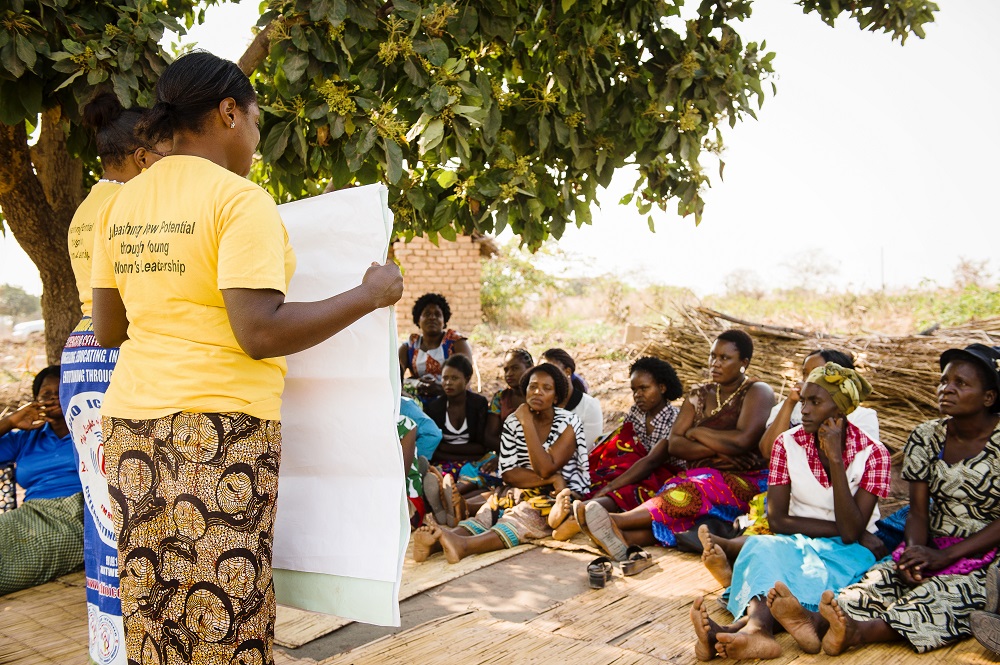
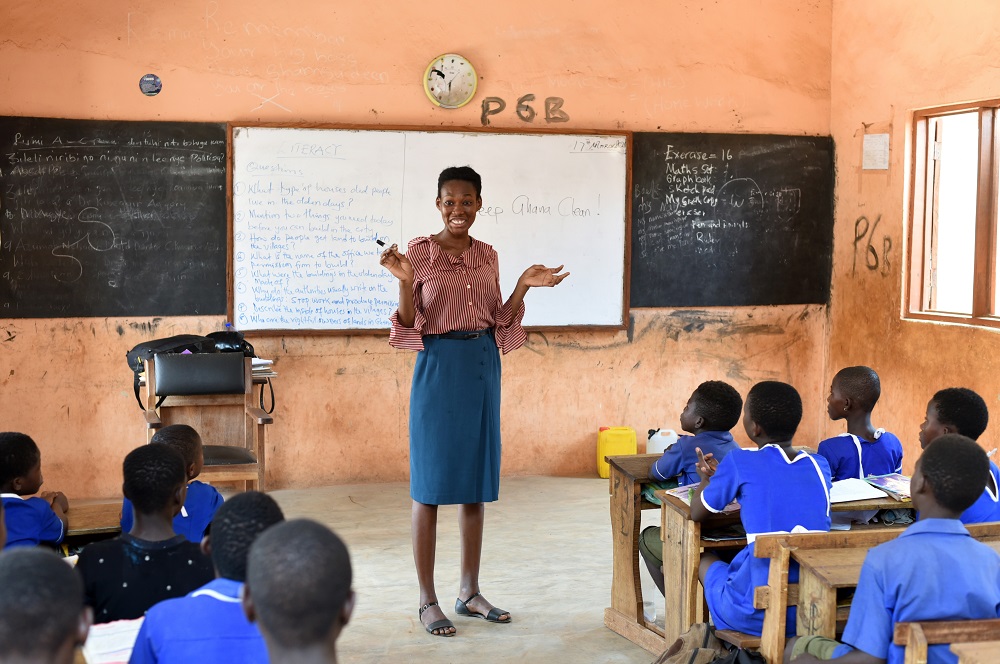
What advice would you give to someone who wanted to get involved with social justice or work to support the education of others?
I’d definitely encourage them! I have never regretted moving into the non-profit world.
This is the most rewarding, and intense, role I’ve ever done. Think about transferable skills and sideways routes; it’s not always necessary to get a development Master’s, for example. And think critically about the value you can add and how you can amplify the voices and centre the expertise of the people you’re hoping to serve.
Written by
Katie is Executive Director, Global Hub of CAMFED, an international non-profit that
supports girls to learn, thrive and lead change. She has previously worked in the publishing sector and is passionate about increasing women’s access to education.


